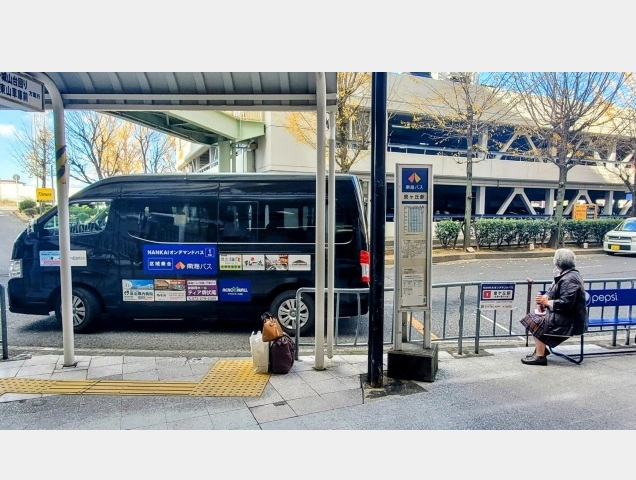Research News
Apr 21, 2025
- Human Life and Ecology
Let’s walk and roll: Demand-responsive transport increases elderly daily steps
Demand Responsive Transportation in Senboku New Town, Osaka
Demand-responsive transport services have effects on elderly passengers' daily steps
Credit: Haruka Kato, Osaka Metropolitan University

In residential areas, where a growing number of older people live, first- and last-mile mobility has become a social problem. Demand-responsive transport (DRT) has the potential to address this social problem. DRT is a mode of transportation that dispatches passengers on demand to pick them up and drop them off according to their needs.
Bachelor's student Mr. Souta Nakajima and Dr. Haruka Kato, a junior associate professor at Osaka Metropolitan University, investigated the effect of DRT on residents' average daily steps. This study analyzed the case using the DRT demonstration project in Senboku New Town. Participants were recruited via the Health-Smart-Senboku smartphone application.
The results revealed that DRT operation significantly increased the average daily steps by 628.16 [95%C.I. -231.37 to 1487.70, p=0.009] steps/day. This study also showed that the number of steps taken by the user group was lower than that of the non-user group before the demonstration experiment but increased to the same level as that of the non-user group during the demonstration experiment. In addition, this study confirmed that DRT can promote walking among people with health-related problems who cannot use a private car.
“Our findings informed policymakers of the cross-sectoral effects of DRT,” said Mr. Nakajima and Dr. Kato. “It is difficult for the transportation sector alone to bear the cost of operating the DRT, which is based on fare revenue. Therefore, the operation of DRT should be supported by the healthcare sector as well as the transportation sector through proper evaluation of its social impact. The multiple stakeholders must discuss the DRT operation as a transdisciplinary co-creation project to sustain the DRT as first- and last-mile mobility.”
The findings were published in the Journal of Transport and Health.
Paper information
Journal: Journal of Transport and Health
Title: Effects of Demand-Responsive Transport on Daily Waking Steps in Senboku New-Town: A Cohort Study Using Propensity Score Matching
DOI: 10.1016/j.jth.2025.102011
Authors: Souta Nakajima, Haruka Kato
Published: 24 February 2025
URL: https://doi.org/10.1016/j.jth.2025.102011
Contact
Haruka Kato
Graduate School of Human Life and Ecology
E-mail: haruka-kato[at]omu.ac.jp
*Please change [at] to @.
SDGs

